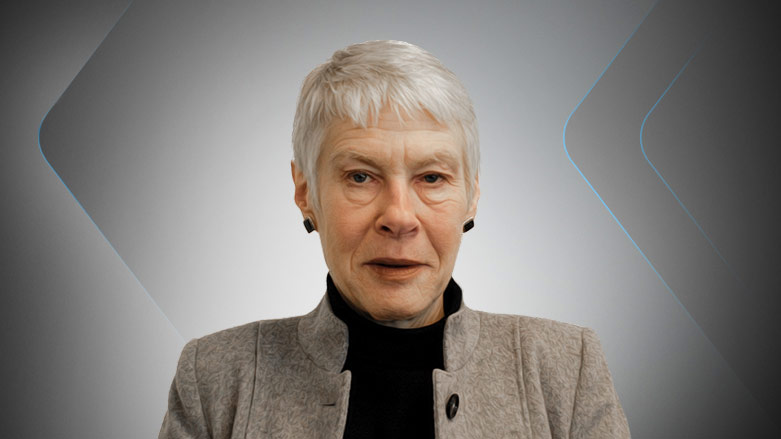The Independence Referendum: President Barzani’s statement

Earlier this month, Masoud Barzani, President of the Kurdistan Region, issued an important statement calling for a referendum on Kurdish independence. His statement comes at an unheralded milestone: nearly 25 years of self-rule in Iraqi Kurdistan, rooted in the aftermath of the 1991 Gulf War. Noteworthy, this long period of self-government is without precedent in modern Kurdish history. It has also been relatively successful. It should not be judged against an American or European standard, but, rather, in comparison to other governments in the area. In that respect, the Kurdistan Regional Government (KRG) constitutes a most impressive achievement.
After a quarter century of running their affairs, it seems entirely reasonable that Iraq’s Kurds should consider formalizing their de facto status. That is noticeably so, given the disarray, even chaos, among their immediate neighbors. Whether the countries of Iraq and Syria will continue in their present forms is questionable, independent of any decisions that Kurds might take. Reconstituting a unified Syrian state will be impossible, Israeli officials have suggested. Additionally, informed US observers are skeptical that Baghdad will be able to reestablish its authority over Iraq’s Sunni Arab regions without fundamental political reforms that do not appear likely.
Almost certainly, the KRG will hold a referendum on independence later this year. Thus, Mr. Barzani’s statement was not merely a verbal exercise, but the prelude to a meaningful action of historical significance.
The statement, addressed to the “Dear people of Kurdistan,” began with brief criticism of “local politicians and regional officials” who had made “false and unfair statements” about the right of the Kurdish people to hold a referendum on independence. However, as Mr. Barzani affirmed, “A country named for the Kurds is a reality in the Middle East.” Perhaps, he had in mind the KRG and the past 25 years of Kurdish self-government? That is certainly a key reality.
However, Kurds need to demonstrate this reality, Mr. Barzani said. Otherwise “the problem will continue.” Like any other nation in the Middle East, “The Kurds have a natural, God-given right to self-determination.” If the people of Kurdistan “wait for others” to give them a state “as a gift,” they will never achieve it.
Mr. Barzani then focused on the West, explaining the origins of the problem: the 1916 Sykes-Picot treaty, secretly concluded between France and Britain, to divide certain, mostly Arab, parts of the Ottoman Empire. Such imperial machinations caused “a century of war” and instability. “Do [the Western countries] put obstacles and difficulties before their own people?” He asked. “Just as Scotland, Catalonia, Quebec, and other places had the right to determine their future, the people of Kurdistan have the same right.” He might also have noted that modern states sometimes reconstitute themselves, when their component peoples no longer wish to remain together, as in the 1992 dissolution of Czechoslovakia into the Czech Republic and Slovakia. Boundaries are not set in concrete.
Mr. Barzani then addressed other Kurdish political figures, sounding like a somewhat frustrated Western leader might. Some people make excuses “to justify denying or postponing” the referendum, but “they know there is a golden opportunity,” and later “they will claim that the opportunity existed, but the leadership did not pursue it,” Barzani stated.
He then turned to the proposed plebiscite. “The time has come, and the conditions are suitable for the people to decide their future through a referendum,” he affirmed. “This referendum would not necessarily lead to an immediate declaration of statehood but, rather, to know the will and opinion of the people of Kurdistan,” reassuring those who are apprehensive about or openly opposed to an independent Kurdish state. The Kurdish leadership would then “implement this will in the appropriate time and circumstances.” And he declared that this would be a “peaceful and modern process,” which would bolster “regional peace and stability.”
What is the likely result of such a referendum? In January 2005, an unofficial referendum on independence was held in Iraqi Kurdistan, at the time of the KRG’s legislative elections and Iraq’s parliamentary elections. Nearly 99% of those voting on the question of independence voted “yes.”
Finally, Mr. Barzani’s statement ended with an exhortation to the people of Kurdistan, who have “experienced war, genocide and other catastrophes.” These catastrophes were inflicted on them by others, but “change is coming,” he affirmed. “After all these disasters, it is time for the people of Kurdistan to determine their destiny for themselves,” to take matters into their own hands, so these catastrophes will not occur again. Concluding, he affirmed, “We all have to work together, as hard as we can, hand in hand…and with all your enthusiasm, together we can achieve this goal.”
Laurie Ann Mylroie, Ph.D., taught at Harvard University and the U.S. Naval War College. Most recently, she served as a cultural advisor to the U.S. military in Afghanistan.
The views expressed in this article are those of the author and do not necessarily reflect the position of Kurdistan24.
